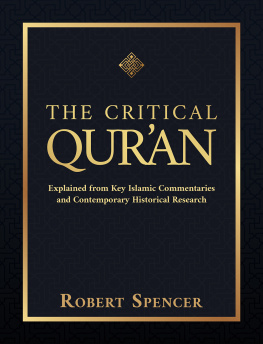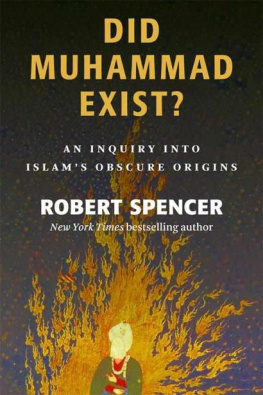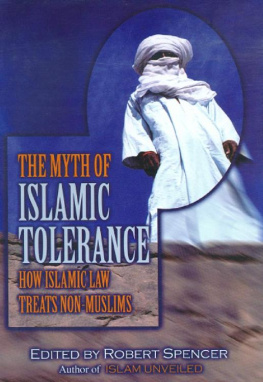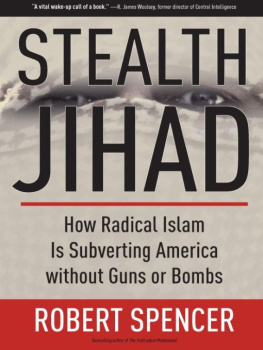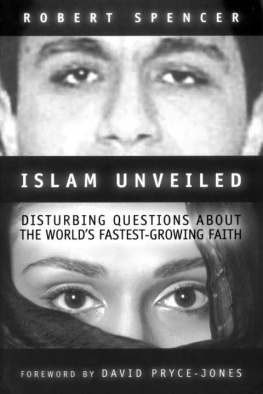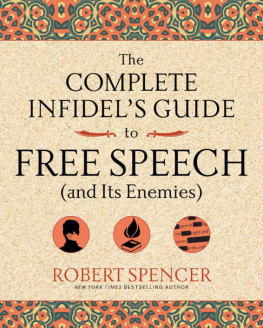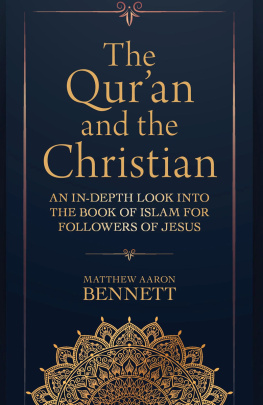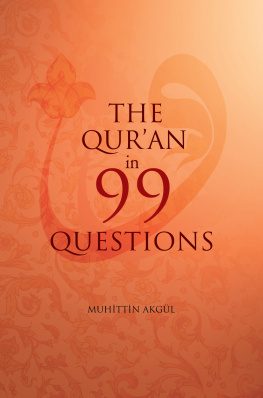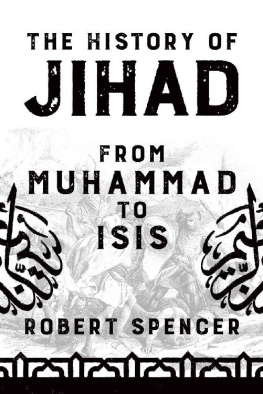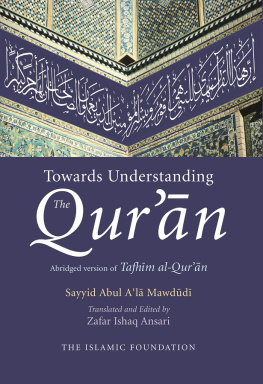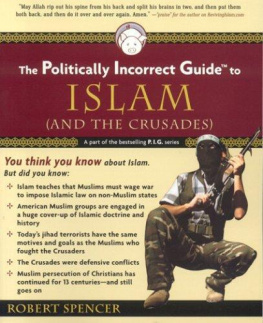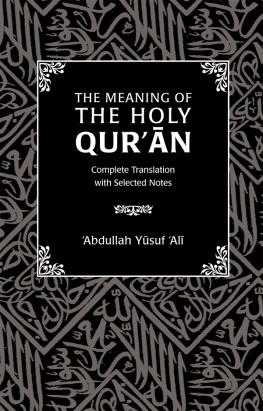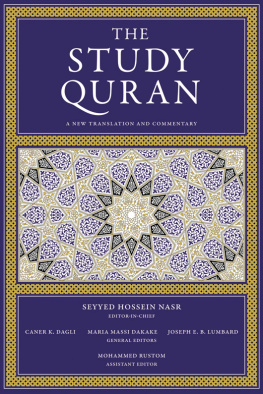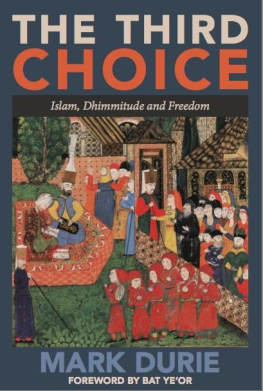Advance Praise for
The Critical Quran
The ever-courageous Robert Spencer presents a non-apologetic translation of the Quran, stripped of any misleading interpretation. The truth no longer hidden behind semantics, this book removes the veil of deceit and reveals the suras as we should all come to know them. This masterpiece should not only motivate us all to always boldly choose freedom and reject unfreedom, it also provides us with the arguments to substantiate the consequences of that choice.
Geert Wilders, MP, Party for Freedom, Netherlands
An absolutely wonderful tafsir (commentary) on the Quran.
Ibn Warraq, editor of What the Koran Really Says, The Origins of the Koran, and Which Koran?
Robert Spencer's annotated translation interprets about every other line of the Qur'an, finally transforming an extraordinarily challenging book into a comprehensible one. That is a great achievement.
Daniel Pipes, Middle East Forum
A must-read. Robert Spencer presents in this well-researched volume an edition of the Quran with a representative analytical survey of its Islamic understanding and modern historical-critical research. This book offers interested readers, Muslim and non-Muslim alike, a compendious survey of the Islamic understandings of the Quran, including the many hermeneutical, exegetical, and philological difficulties encountered by even the classical commentators.
Robert M. Kerr, Research Director, Inrah Institute for Research on Early Islamic History and the Qur'an, Saarbrcken, Germany
BOMBARDIER BOOKS
An Imprint of Post Hill Press
The Critical Quran:
Explained from Key Islamic Commentaries and Contemporary Historical Research
2021 by Robert Spencer
All Rights Reserved
ISBN (print): 978-1-64293-949-1
ISBN (ebook): 978-1-64293-950-7
Cover Design by Tiffani Shea
No part of this book may be reproduced, stored in a retrieval system, or transmitted by any means without the written permission of the author and publisher.

Post Hill Press
New York Nashville
posthillpress.com
Published in the United States of America
1 2 3 4 5 6 7 8 9 10
Digital book(s) produced by Booknook.biz
Offered with love to all the people of the world who love the Quran
Note: No system of transliteration for Arabic words and names is entirely satisfactory, and none is in consistent usage among writers in English. English simply is not equipped to render the subtleties of the Arabic alphabet. The transliteration in this volume is not systematic; it sacrifices consistency to accord as much as possible with the familiarity of common usage.

Introduction
The Critical Quran is designed to equip the English-speaking reader with a knowledge of the Quran and how it is interpreted in Islam, and to see how mainstream Islamic commentators understand the text, particularly its passages that are most problematic for non-Muslim readers: the exhortations to jihad warfare, the Sharia provisions that call for the denial of various rights to women, and the like. In numerous other editions of the Quran, these are obscured with apologetic intent. Here, they are explained in full.
This edition of the Islamic holy book also provides a general introduction to some of the problems with the text. This is also unusual, as for the Islamic scholarly tradition, such problems do not actually exist. The Quran is perfect, unchanging, and unchangeable, and its centrality in Islam cannot be overstated.
The Quran, according to Mohammed Marmaduke Pickthall, an English convert to Islam who translated the Muslim holy book, is an inimitable symphony, the very sounds of which move men to tears and ecstasy.
To Muslims worldwide it is the perfect, unaltered word of Allah, delivered without the slightest error by the angel Gabriel to the Islamic prophet Muhammad, and then transmitted, again with no error or deviation at all, down the centuries to reach us in exactly the same form it had when it was first compiled and codified by the caliph Uthman in the year 653. It is for pious Muslims an all-encompassing guide to living, as eternally relevant as it is eternally unchanging.
Yet it is by no means immediately inviting, particularly to the non-Muslim reader. One principal reason for this is that it is hard to follow, as it is not arranged chronologically or by subject matter, but by the length of the chapters, suras. With the exception of the brief first chapter, its 114 suras are generally arranged, with some exceptions, from the longest to the shortest. According to Islamic tradition, the first revelation that Muhammad received is not sura 1, but sura 96 of the Quran. Islamic tradition also holds, with some disagreements, that the last revelation Muhammad received, which came to him while he was on his deathbed, is sura 110 of the Quran, not the last one in the book, sura 114.
Further complicating matters is the fact that the Quran follows no single narrative line; it is not a collection of historical accounts, but more a collection of sermons, the longer of which deal with a wide variety of topics, with no clearly discernable unifying thread. It makes no attempt at linear history, either as a whole or, generally, within the individual suras.
According to Islamic tradition, Gabriel first began visiting Muhammad and giving him sections of the Quran, a perfect copy of the mother of the book (43:4) that has always existed in Paradise with Allah, in the year 610. Over the next twenty-three years, Gabriel delivered Quranic revelations to Muhammad piecemeal. Some were written down, others memorized by various followers of Muhammad. According to Islamic tradition, the Quran was not collected together when Muhammad died in 632, and early Muslims were reluctant to do so, since Muhammad had not done it himself. However, when some of those who had memorized portions of the Islamic holy book were killed in battle, some of the believers began to press for its collection, the rejection of variant readings, and the codification and distribution of the agreed-upon text.
That is, again according to Islamic tradition, supposed to have taken place in the year 653, under the direction of the caliph Uthman, the third successor of Muhammad. However, this account, however widely accepted, lacks any contemporary attestation and is likely to be more legend than historical fact. Although Uthman is supposed to have distributed his Quran to the various Muslim provinces, virtually no trace of the book, such as quotes or even mentions of its existence, exist from the time it is supposed to have been completed (632), or from when it is supposed to have been distributed throughout the Islamic world (653), or for four decades thereafter, when quotations from the Quran appear on wall inscriptions inside the Dome of the Rock, although they are not identified as such. Not until the early part of the eighth century does mention of the Quran begin to appear in the polemical literature of non-Muslims and Muslims alike.
Uthman is said to have burned the variants in the Quranic text, and Islamic polemicists hold to this day that no such variants exist, as the text has been miraculously preserved in its original form. Yet numerous variants actually do exist. Islamic tradition seems to provide for this when Muhammad is depicted as saying: This Quran has been revealed to be recited in seven different ways, so recite of it whichever [way] is easier for you (or read as much of it as may be easy for you).
Next page
